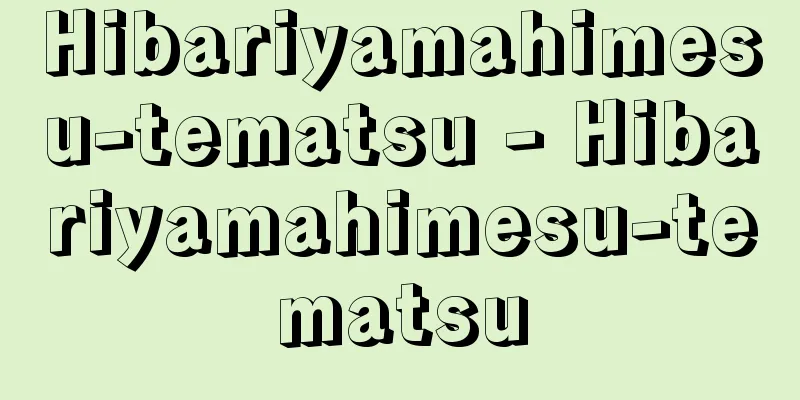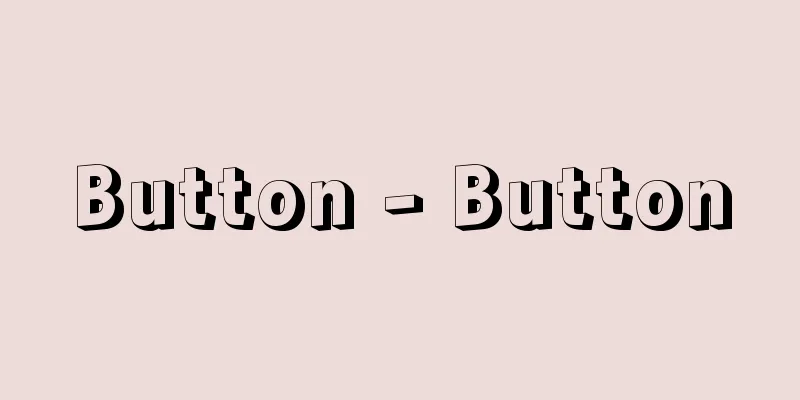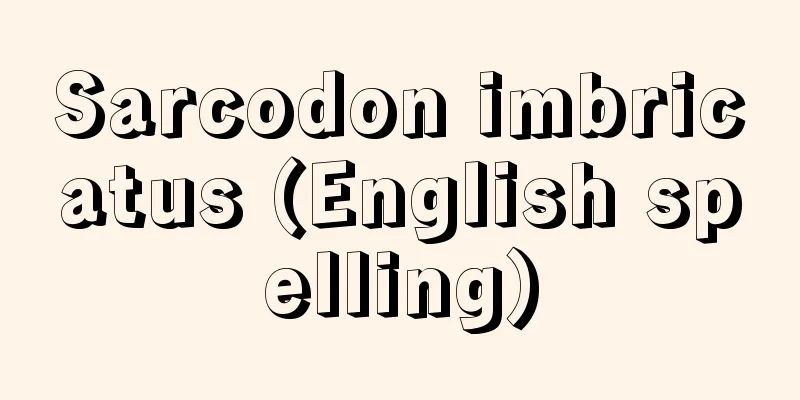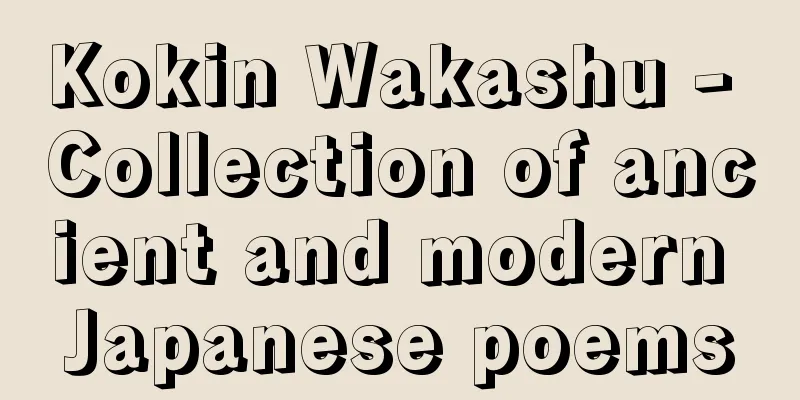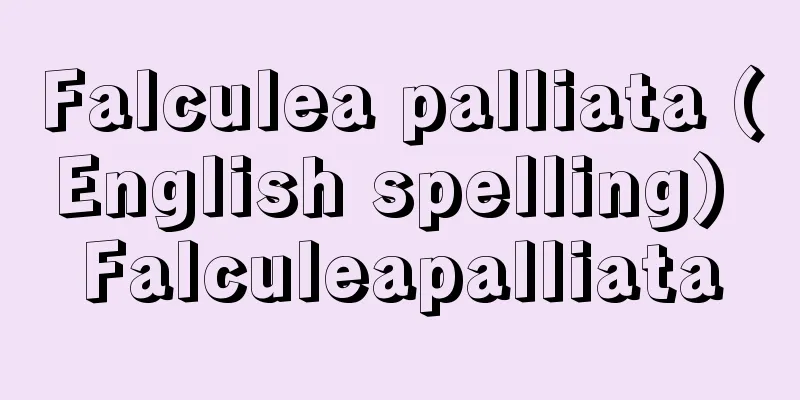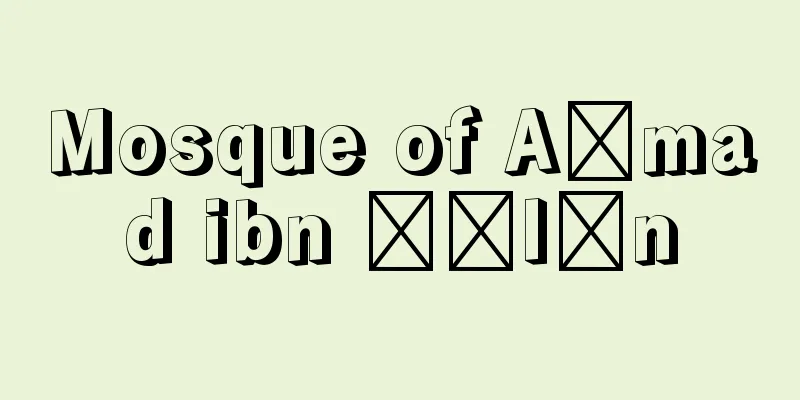Freedom of occupational choice
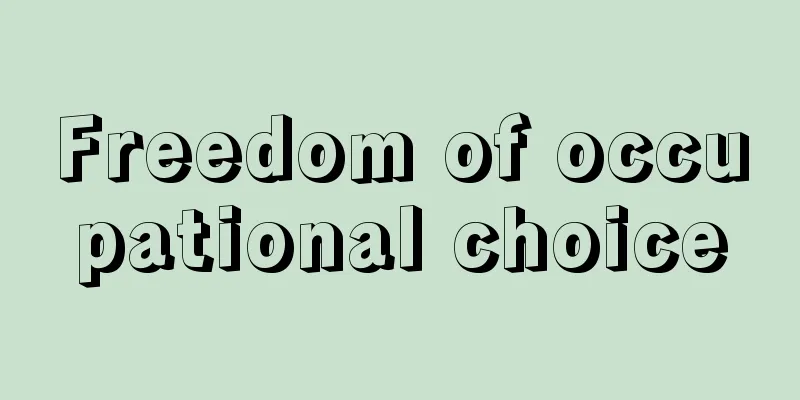
|
The freedom to choose the occupation one wishes to pursue. One of the freedom rights. Also known simply as freedom of occupation, it is not limited to the freedom to decide on an occupation, but also includes the freedom to practice that occupation, or "freedom of business." Although there was no provision for this in the Meiji Constitution, the Constitution of Japan guarantees it "as long as it is not contrary to the public welfare" (Article 22, Clause 1). There are no restrictions on the freedom to decide one's own occupation, except for those prohibited by law (human trafficking, prostitution, etc.), but the freedom to practice one's occupation is subject to various restrictions from the perspective of "public welfare," that is, because business has a large impact on the lives of the people and the state also carries out public works. Examples of restrictions can be broadly divided into those imposed for police purposes, such as to prevent the occurrence of social harm, and those imposed for policy purposes, such as to implement certain policies. [Masaaki Ikeda] Restrictions for police purposes
Furthermore, for professions related to human life, health, and safety, or those that require specialized knowledge, only those who have passed a public examination and have been certified as qualified are permitted to perform the profession. There are many examples, such as doctors, dentists, pharmacists, nurses, architects, lawyers, tax accountants, judicial scriveners, nutritionists, cooks, beauticians, and barbers. These professions are called samurai law, etc., because they include the character "shi" (master). (2) Regulation of business activities For the safety of human life and health, pharmacies and businesses that handle hazardous materials such as explosives and high-pressure gas are subject to strong administrative supervision, including on-site inspections, emergency measures, and improvement orders. Furthermore, for the maintenance of good morals, the hours of operation and business activities of adult entertainment businesses are strictly regulated. In addition, for the prevention and crackdown of crime, pawnbrokers and secondhand goods businesses are subject to regulations on bookkeeping, entry, and investigation. [Masaaki Ikeda] Policy-driven regulations
(2) Regulation of business activities In order to ensure fair trade, the Antimonopoly Act restricts major businesses from coordinating price hikes and prohibits unfair representations (Act against Unfair Premiums and Misrepresentations), etc. [Masaaki Ikeda] "A Theory of Occupational Choice" by J.L. Holland (1993, Employment Issues Research Group) " "Contemporary Human Rights Essays" by Katsuo Tsuburaya (2002, Kobundo Publishing) [Reference items] | | | |Source: Shogakukan Encyclopedia Nipponica About Encyclopedia Nipponica Information | Legend |
|
自分が従事したい職業を選択する自由。自由権の一つ。単に職業の自由ともいい、職業を決定する自由にとどまらず、その職業を行う自由、つまり「営業の自由」も含まれる。明治憲法には規定はなかったが、日本国憲法は「公共の福祉に反しない限り」これを保障している(22条1項)。 自己の職業を決定する自由については、法律が禁止するもの(人身売買、売春など)を除いて、なんの制限もないが、その職業を行う自由については、営業が国民生活に与える影響が大きく、また国が公共事業を行うこともあって、その見地から、つまり「公共の福祉」のために、さまざまな規制が加えられている。規制の例を大別すると、社会的害悪の発生を防止するためという警察目的から規制される場合と、一定の政策を実施するためという政策目的からなされる場合とがある。 [池田政章] 警察目的からする規制
また人の生命、健康、安全に関係する職業や専門的知識が必要なものについては、職業を行うにあたって、公的な試験で資格を認定された者だけに許されるものがある。医師、歯科医師、薬剤師、看護師、建築士、弁護士、税理士、司法書士、栄養士、調理師、美容師、理容師などの例があり、これも例が多い。これらは士(師)がつくところから士(さむらい)法などとよばれる。 (2)営業活動の規制 人命や健康の安全のために、立入検査、緊急措置、改善命令など、強い行政監督権に服するものに、薬局、火薬や高圧ガスなど危険物を取り扱う営業がある。また善良な風俗維持のために、風俗営業については、営業時間・営業行為について徹底した規制がなされる。そのほか犯罪の予防や取締りのために、質屋や古物営業については、帳簿の記載や、立入り・調査などの規制がある。 [池田政章] 政策目的からする規制
(2)営業活動の規制 公正な取引を確保するために主要業者が同調して価格引上げを行うことを規制し(独占禁止法)、不当な表示を禁止する(不当景品類及び不当表示防止法)などしている。 [池田政章] 『J・L・ホランド著『職業選択の理論』(1993・雇用問題研究会)』▽『円谷勝男著『現代人権論考』(2002・高文堂出版社)』 [参照項目] | | | |出典 小学館 日本大百科全書(ニッポニカ)日本大百科全書(ニッポニカ)について 情報 | 凡例 |
Recommend
Yamana Ujikiyo
Year of death: 2nd year of Meitoku/8th year of Gen...
Osaka Hamagigi - Osaka Hamagigi
...It has no scales. A closely related species, t...
ALARA (English spelling)
"As Low As Reasonably Achievable" is an ...
Heoclisis japonica (English spelling) Heoclisis japonica
...Cylindrical eggs about 2 mm long are laid one ...
Tensor - Tensor (English spelling)
It is an extension of the concept of vectors, and...
Lérida - Lérida (English spelling)
The capital of Lleida province in the Catalonia r...
Miura Plum Garden
Year of death: 14th March 1789 (9th April 1789) Ye...
Rouffignac (English spelling)
A village in the Dordogne department in southweste...
Corporate bonds - Shasai
In theory, it was defined as "a claim agains...
Aah, the revolution is near.
… In Japan, the Labor Union Promotion Association...
Purple Omoto - Purple Omoto
A cold-tolerant perennial plant of the Commelinac...
Kitagawa Sosetsu
Years of birth: unknown. Painter of the early Edo ...
Abnormal presentation - Ijotai
…This is an abnormal presentation in which the fe...
Asahi Shimbun - Asahi Shimbun
One of Japan's leading national newspapers. M...
Nanbanbuki - Nanbanbuki
This is also called Nanban Shibori. Since ancient ...

